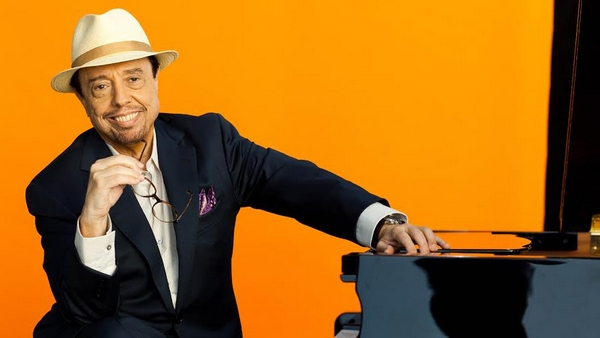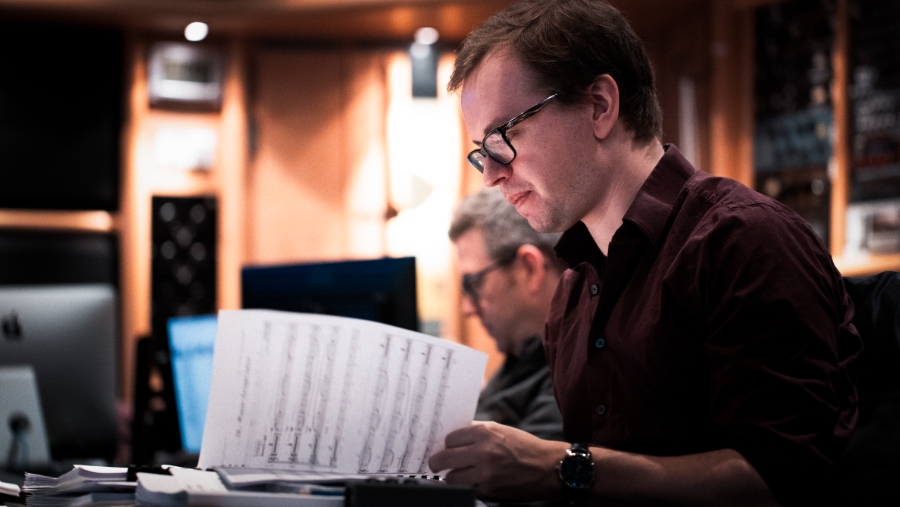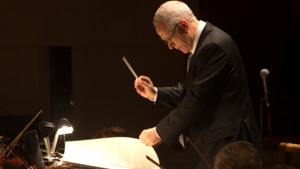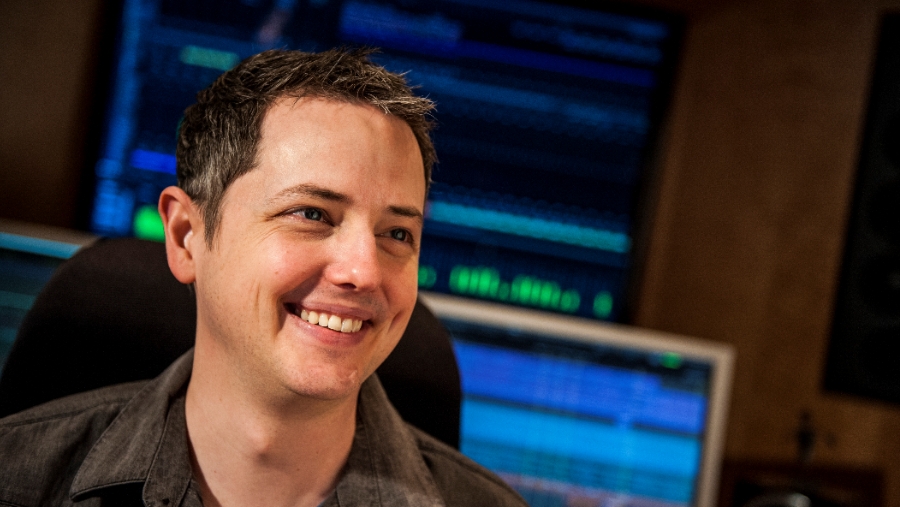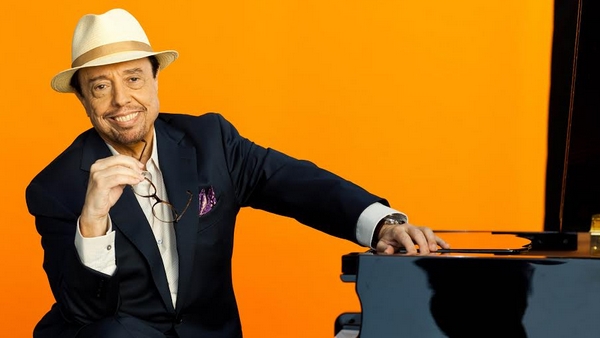 Sergio Mendes is a producer, composer, keyboardist and vocalist whose influence on the music industry has spanned five decades and continues to evolve through new collaborations and mediums. One of the most internationally successful Brazilian artists of all time, Mendes started his career with the groups Bossa Rio and the Sergio Mendes Trio but it was Sergio Mendes and Brasil ’66 which sparked global stardom. Mendes added soul and funk to his jazz and pop and Mendes’ signature mix of bossa nova/samba and his distinctive pop instrumentation features melodies with distinct sophistication and alluring sexiness that ultimately came to define Brazilian music for many music enthusiasts around the world.
Sergio Mendes is a producer, composer, keyboardist and vocalist whose influence on the music industry has spanned five decades and continues to evolve through new collaborations and mediums. One of the most internationally successful Brazilian artists of all time, Mendes started his career with the groups Bossa Rio and the Sergio Mendes Trio but it was Sergio Mendes and Brasil ’66 which sparked global stardom. Mendes added soul and funk to his jazz and pop and Mendes’ signature mix of bossa nova/samba and his distinctive pop instrumentation features melodies with distinct sophistication and alluring sexiness that ultimately came to define Brazilian music for many music enthusiasts around the world.
In the ’80s, he scored with the No. 1 Adult Contemporary and pop top-10 hit “Never Gonna Let You Go.” And in 1992 Mendes was awarded his first Grammy in the category of Best World Music for his album “Brasileiro.” Mendes’ iconic album “Herb Alpert Presents Sergio Mendes & Brasil ‘66” was also inducted into the Grammy Hall of Fame, joining Bruce Springsteen’s “Born in the U.S.A.,” Dr. Martin Luther King Jr’s “I Have A Dream” speech, the Rolling Stones’ “Exile On Main St.,” and others in the 2012 class of historically significant recordings.
Mendes was the executive music producer and also contributed five songs to the world wide hit animated film “Rio.” The soundtrack, “Rio: Music from the Motion Picture” featured re-recorded versions of his hits “Mas Que Nada” and “Valsa Carioca” and was responsible for bringing the distinctive rhythms of Brazil to a global audience. He also received his first Oscar nomination in the music category for “Real In Rio” and Mendes returns to contribute to the soundscape of the sequel Rio 2. We were fortunate enough to spend some time with Sergio to discuss his role as executive producer on this soundtrack and talk about the colorful rhythms that populate the film.
GST: I understand the point of your approach to the Rio 2 soundtrack was to help give the film a much richer and wholly Brazilian feel as opposed to just focusing on Rio de Janeiro like the first film did. Can you talk about some of the conversations you had with the director Carlos Saldanha?
SM: Yes, Carlos told me the story and showed me the storyboards, especially the ones where all the characters were going to travel through Brazil and eventually end up in the Amazon.
So it came to my mind that there would be a good situation to show the diversity of Brazilian music, the melodies and rhythms. That really opened a whole door for us to really explore ideas because we have so many different styles of music, rhythms and melodies in Brazil. The sound we came up with and all the instruments and artists we worked with really gave us the opportunity to do something special for Rio 2.
GST: You worked with a lot of Brazilian artists, like UAKTI for instance, but when you’re working with someone like Bruno Mars, who isn’t from the country and may not know Brazilian music, how do you coach them through learning the vibe you’re going for?
SM: Well Carlos spoke to Bruno directly about his contribution. I actually didn’t work with him in person but I know he was asked to write a song that has the kind of flavor we all wanted. It was the same thing with Janelle Monae in the opening scene and the opening song. At the beginning of the movie everyone in Rio is ready to celebrate the New Year. In that scene people are singing and dancing on the beach. Janelle has a lot of knowledge because she has been to Brazil before so she was very familiar with the Brazilian music. She is an amazing singer and we just thought she would be the perfect guest artist to write the opening music and song.
GST: I really loved a lot of the songs on the soundtrack. “Beautiful Creatures” is probably my favorite but I also really enjoy “It’s a Jungle Out Here” and “O Vida”. You are the “executive producer” but can you better define what that term really means and what you did putting this album together?
SM: Well for me, the role was the same as it was in the first Rio movie. I’m the producer and I supervise the assembly of the album and artists but I also write music for it too. Being part of a music team on a movie is all a collaborative effort. Between myself, the composer John Powell and the director Carlos Saldanha, the three of us decided on what the music was going to be and shared responsibility making all the decisions.
The movie dictates the music, and each scene told us what to do musically. So Carlos would have his guidance and suggestions and John Powell did the same thing. We all worked off one another and were constantly introducing and sharing our own ideas. Now as a music composer, John Powell has a lot of knowledge and knew what he wanted to do with the score. My job was to suggest and work with some Brazilian musicians and rhythms that are unique but fit the story as well as write songs for the movie.
GST: So as far as suggesting artists, one of the more notable and energetic elements in the film and album is what the band Barbatuques brings to the production. What was it like working with them?
SM: Oh they are great! They are a body percussion group and they are really one of a kind. Even in Brazil I think they are the only group that does that. We brought them to the United States and recorded them here at John Powell’s studio. They are very amazing to work with and are a very nice addition to the soundtrack because they are so unique.
GST: You said it. There aren’t a lot of artists who still use ‘jaw harps’ anymore are there?
SM: *laughs* yes, you’re right *laughs*
GST: The whole album has a really fun and colorful sound to it; there’s not a down beat in the entire soundtrack. It’s very dynamic and a lot of that is because of your influence and the expertise you bring to this project.
But if you could possibly sum it up, what do you think are the key or distinctive elements in Brazilian music that make it what it is? Is it the instruments, the tempo, or just an energy to it all?
SM: Well I don’t think you can answer that too easily. There are lots of components to Brazilian music. It can be romantic, it can be sensual, but mainly it’s very happy with rhythms that are very infectious. Those kinds of rhythms come from and are found all over the country. But the melodies, which is for me the most important thing, is maybe what defines Brazilian music.
Brazilian melodies, if you go back to the film Black Orpheus and movies like that, they always caught the attention of the public all over the world because they have those components – happiness, joy, a sunny, sexy, feeling to every note.
So if you start at Black Orpheus and fast forward some 60 years later to Rio 2, it’s the same kind of components. There’s joy, there’s dancing and participation, etc. Again, that opening scene for instance, the scene on the beach on New Year’s Eve is a big, big party and the music is just as big – like Carnival – and that’s Brazilian music.
GST: What I like about it, and I’m learning more and more about this as I was preparing to talk to you, is that it’s a lot of free form music isn’t it? It’s not as structured as say American rock and roll or gospel. It really flows on its own, right?
SM: Yes, that’s right! Absolutely.
GST: One of the most exciting sequences in the movie is where the two bird tribes are playing futbol, well, air futbol…it’s really cool actually.
SM: That’s my favorite scene. I love it.
GST: It’s a lot of fun and very energetic, but musically it too was a bit unique. It’s partially score music and partially a song. How did that come together for this sequence?
SM: That’s a song that I wrote with Carlinhos Brown. John Powell mixed his music with some rhythms of
Barbatuques and also UAKTI which is another group from Brazil. They are percussionists as well but they play and build their own instruments and they really are amazing. John used their sound a lot through the movie and the sound score as well. It all helps make it very vibrant and fast paced.
John is very knowledgeable about Brazilian music but he also listens to music from all over the world and picks up things wherever he goes. He knows a lot about music from Africa, he’s very familiar with Indian and Asian music as well.
He’s an incredible musician and he loves Brazilian music and has a passion for that so he didn’t have too hard of a time getting to work on this or the first Rio movie. I think it was a great opportunity for me to work with him.
GST: You’ve been making music for more than 50 years, you performed at the Oscars, you’re also an Oscar-nominated and Grammy winning artist and you’ve toured all around the world. I guess you can say you’ve been everywhere and done everything, right?
SM: *laughs* Well, not everything *laughs*
GST: I’ve been a fan of the “Herb Alpert Presents” records but I really enjoyed the “Celebration” album – the retrospective of your lifetime in the industry. There’s a whole generation of people discovering your music after so many decades thanks to an album like this and, well maybe their parents’ records, but you’re still touring and making albums.
SM: Yes, it is something I never tire of.
GST: So with all that you have accomplished, I know this may sound generic, but what gets you out of bed every morning and what keeps you wanting to make music?
SM: That’s an easy question to answer my friend, it’s in my blood! I’m actually making a record right now. After I’m done
speaking with you I’m going to go back to the studio and continue working on a brand new album that’s coming out the first week in June.
I have a lot of young Brazilian artists on it as guests. I even wrote a song with John Legend, another one with Janelle Monae and will.i.am is producing one track and I’m very excited about it.
I just love what I do and I am blessed to do something that I have so much pleasure doing, and I’m giving pleasure to the people as well. So it really is a great thing that at this stage in my life that I’m still working. I just feel very lucky!
GST: Well, saying “it’s in my blood” is the perfect way to answer the question. *laughs*
SM: *laughs* It is in my blood and it’s what I love to do. *laughs*
GST: So aside from recording I hear you’re also touring right now.
SM: Yes. I’m going to Japan in May and I will go Europe sometime between Summer and Autumn and attend all the jazz festivals and I’ll have the album released in June. The album is going to be called Magic. So maybe I’ll talk to you about that when it comes out?
GST: Oh, I look forward to that! Sergio, it’s been a pleasure. Thank you so much.
SM: Talk to you soon. Bye bye.
Thanks to Sergio for his time. Rio 2 opens everywhere April 11, 2014. Mendes is currently working on his new record, featuring eclectic and upbeat Brazilian rhythms featuring guest vocalists, and the album, titled “Magic“, will be released this June.
